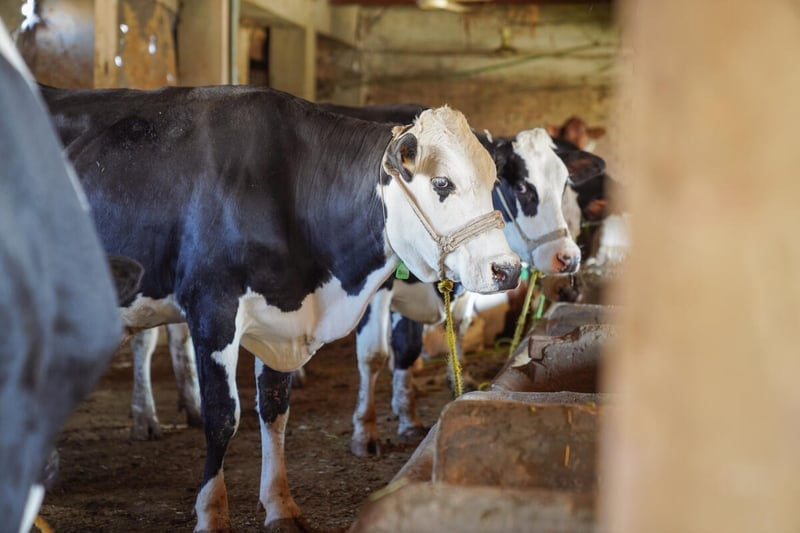December 23, 2025 | 03:07 GMT +7
December 23, 2025 | 03:07 GMT +7
Hotline: 0913.378.918
December 23, 2025 | 03:07 GMT +7
Hotline: 0913.378.918

FMD is a highly contagious viral disease affecting cloven-hoofed animals, including cattle, pigs, sheep, goats, and various wild species.
The recent outbreaks of foot-and-mouth disease (FMD) in Europe and the introduction of an exotic virus strain into the Near East underscore the urgent need for early detection and enhanced biosecurity measures to minimize the impacts of the disease, according to the Food and Agriculture Organization (FAO).
“FAO is recommending urgent biosecurity measures and enhanced surveillance following the recent detection of foot-and-mouth disease (FMD) serotype SAT1 in Iraq and Bahrain. This serotype is exotic to the Near East and West Eurasia regions, raising serious concerns about the potential spread of the virus,” FAO said in an alert.
FMD is a highly contagious viral disease affecting cloven-hoofed animals, including cattle, pigs, sheep, goats, and various wild species. It is typically characterized by fever and blisters in the mouth and on the feet accompanied by lameness. Although few adult animals succumb to disease, young animals may die from sudden heart failure. The virus spreads rapidly and can affect large numbers of animals, especially in countries or regions that are usually free of the disease or do not regularly use vaccination.
While not a public health threat, FMD severely impacts animal health and welfare, food security and livelihoods by reducing livestock productivity, including through lower milk and meat yields. The economic losses are substantial, with global direct production losses and vaccination costs in endemic regions estimated to be USD 21 billion annually. However, the true economic burden of FMD is likely much higher when factoring in the disruptions to both international and local trade. These impacts can have a devastating effect on rural communities and businesses that depend on livestock.
Recently, the FMD virus was detected in Europe, which is normally free of the disease and is now experiencing its worst outbreak since 2001. Germany detected an outbreak in January 2025 but has since been declared free of the disease. However, a separate incursion into Hungary a month later, with subsequent outbreaks in Slovakia, has persisted. As an example of the impact of FMD on international trade, the United Kingdom government has banned the import of meat or dairy products from European countries where the virus has been detected, as well as Austria due to an outbreak in neighbouring Hungary.
Although FMD is endemic in the Near East, there has been a recent upsurge in outbreaks caused by an exotic serotype that was likely introduced from East Africa. So far, cases have been reported by Bahrain, Iraq and Kuwait, though other countries in the Near East and West Eurasia regions are at a high risk of being affected.
Many strains of the FMD virus continue to circulate in different parts of the world, and the recent outbreaks in both Europe and the Near East highlight the ongoing risk this disease poses to livelihoods, food security and safe trade. They also underscore FAO's crucial role in the global monitoring of FMD viruses, not only to help control them where they are endemic but also to rapidly share risk information to protect countries that are usually free of the disease.
Recommended action
FAO urges all countries to maintain vigilance to the ongoing threat. In affected countries, and those considered at high risk of incursion, the following should be considered:
By implementing these measures, countries can significantly reduce the risk of FMD outbreaks and protect their livestock industries.
FAO’s role
At a global level, FAO’s Emergency Prevention System for Animal Health plays a critical role in combating FMD through guiding endemic countries in the implementation of the Progressive Control Pathway for FMD (PCP-FMD), a stepwise pathway for reducing risks through surveillance, prevention, and control. These efforts support the Global FMD Control Strategy, developed in collaboration with the World Organisation for Animal Health (WOAH) under the Global Framework for Transboundary Animal Diseases (GF-TADs).
FAO and the European Commission for the Control of Foot-and-Mouth Disease (EuFMD) also offer country-specific support through training and capacity-building programmes, facilitate vaccine procurement and distribution, track global FMD risks, and develop tools to enhance preparedness and control.
In times of outbreaks such as these, FAO provides crucial emergency response support, including technical assistance and resource mobilization for affected countries.
(FAO)

(VAN) Carbon markets are at a tipping point. The traditional divide between voluntary and compliance systems is disappearing, and this shift is more than a technical adjustment.

(VAN) In the closing months of 2025, Europe has witnessed a marked increase in cases of highly pathogenic avian influenza (HPAI) among wild birds, leading to widespread outbreaks in poultry farms and a rise in detections among carnivorous mammals.

(VAN) Indonesia Minister of Social Affairs Saifullah Yusuf said that the government is mulling a daily living allowance scheme of 10,000 rupiah (US$0.60) for each displaced victim.

(VAN) The global population is expected to grow in the coming years. This means higher demand for animal protein, and therefore, challenges and opportunities for the animal nutrition industry.

(VAN) $58.8 million from Global Environmental Facility targets efforts in Bangladesh, DR Congo, India, Mexico, Senegal, Tanzania and Ukraine.

(VAN) Chinese industry groups are urging a suspension of phosphate fertilizer exports, a move that may tighten global supply and push up prices just as U.S. farmers prepare for spring planting.

(VAN) OMB Director Russell Vought said the National Science Foundation "will be breaking up" the National Center for Atmospheric Research in Colorado.